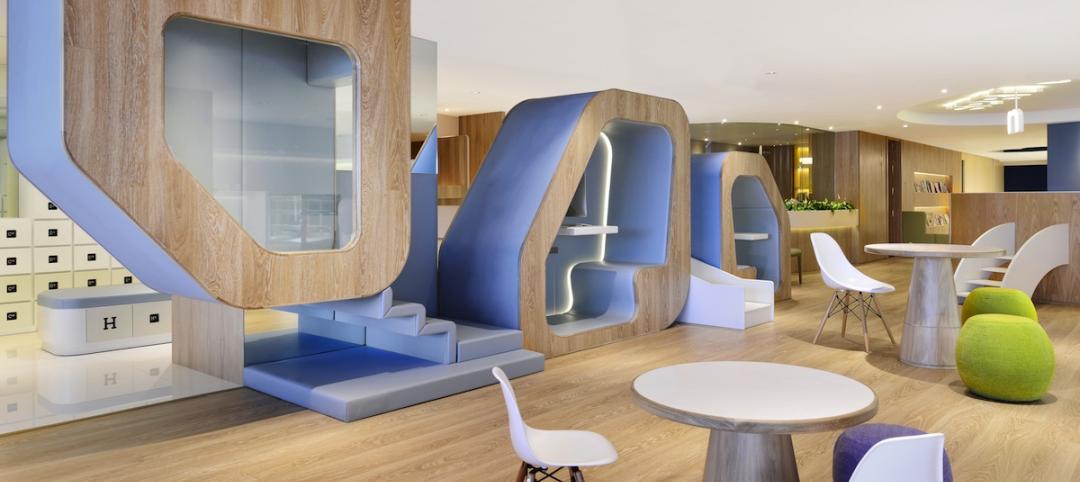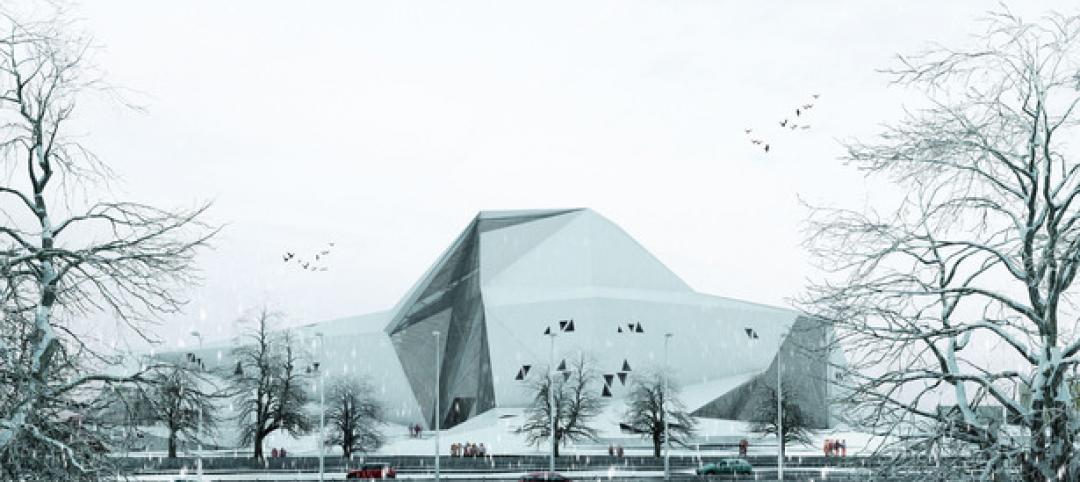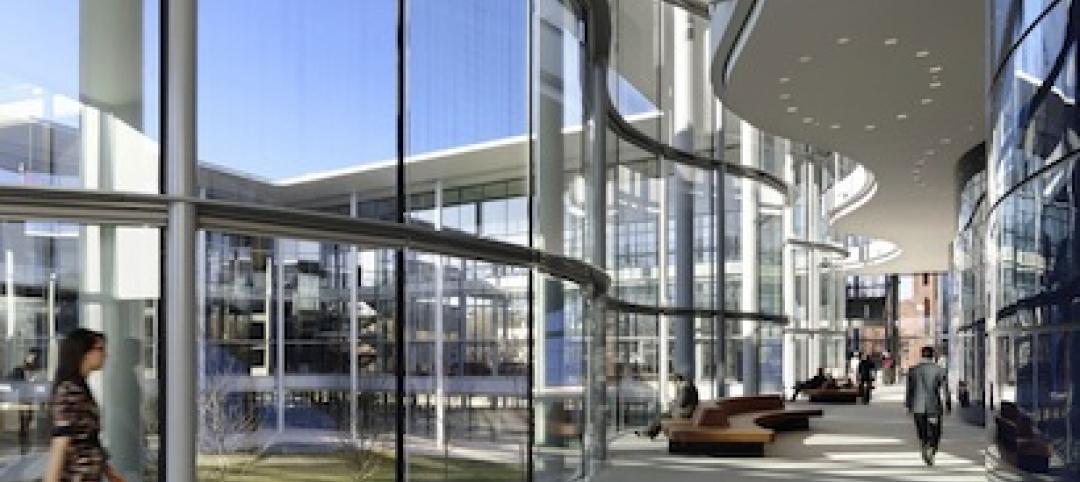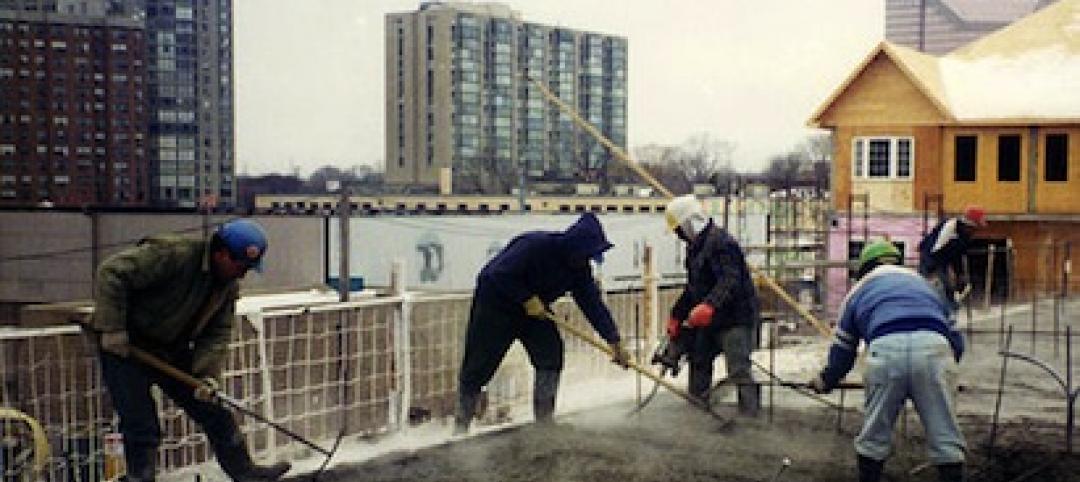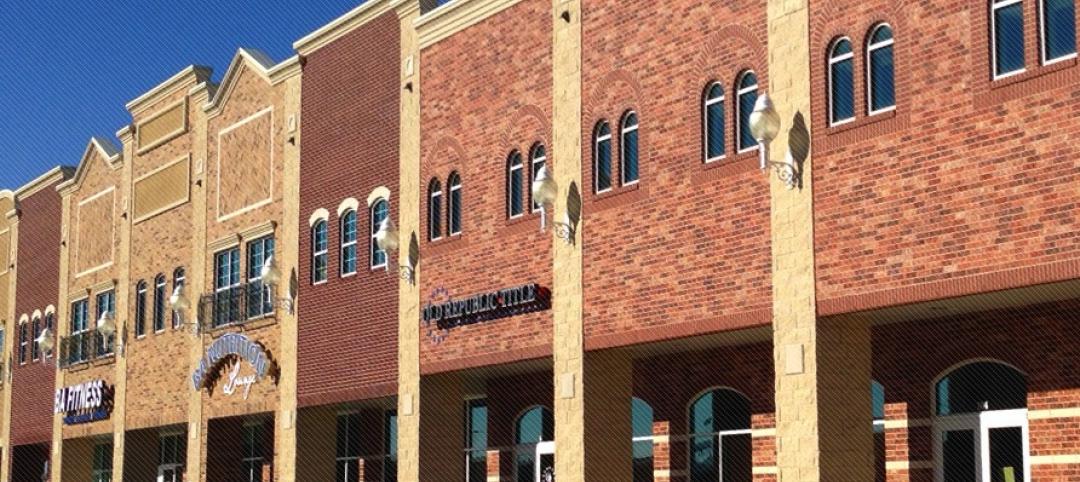Nonresidential construction spending fell 2% in January, which is the largest setback to spending since January 2014, according to the March 2 release from the U.S. Census Bureau.
However, at $614.1 billion on a seasonally adjusted, annualized basis, nonresidential construction spending still is 4.8% higher than one year ago. In addition, the spending estimate for December 2014 was revised downward from $627.1 billion to $627 billion and November's figure was revised from $624.8 billion to $621.9 billion.
"Interpreting January construction statistics is always tricky because the seasonal adjustments can never precisely reflect the impact of any given winter or weather system," said Associated Builders and Contractors Chief Economist Anirban Basu. "New England, among other places, was hit heavily by snow in January and this could explain the monthly decline in nonresidential construction spending.
"Additionally, nonresidential construction spending enjoyed positive momentum through the end of 2014 and, until January, had registered spending growth in five of the previous six months," Basu said. "It is also possible that the West Coast port slowdown impacted construction volumes, including by reducing material availability."
Three of 16 nonresidential construction subsectors posted increases in spending in January on a monthly basis.
- Communication construction spending gained 0.7% for the month, but is down 1.5% for the year.
- Highway- and street-related construction spending grew 0.2% in January and is up 8.7% compared to the same time last year.
- Manufacturing-related spending expanded by 4% in January and is up 22.5% for the year.
Spending in 13 nonresidential construction subsectors declined in January.
- Health care-related construction spending fell 2.3% for the month and is down 2.5% for the year.
- Education-related construction spending fell 3.6% for the month and 0.4% on a year-over-year basis.
- Spending in the water supply category dropped 7.5% from December, but is 3.3% higher than at the same time last year.
- Construction spending in the transportation category fell 1.7% on a monthly basis, but has expanded 8.9% on an annual basis.
- Public safety-related construction spending declined 6.7% on a monthly basis and is down 14.5% on a year-over-year basis.
- Commercial construction spending decreased 5.7% in January, but is up 14% on a year-over-year basis.
- Religious spending fell 11.4% for the month and is down 12.4% compared to the same time last year.
- Lodging construction spending is down 4.4% on a monthly basis, but is up 18.2% on a year-over-year basis.
- Sewage and waste disposal-related construction spending shed 7.5% for the month, but has grown 16% on a 12-month basis.
- Power-related construction spending fell 1.1% for the month and is 13.2% lower than at the same time one year ago.
- Conservation and development-related construction spending fell 5.1% for the month but is up 25.6% on a yearly basis.
- Office-related construction spending declined 1.7% in January but is up 13.7% from the same time one year ago.
- Amusement and recreation-related construction spending fell 3.2% on a monthly basis but is up 19.3% from the same time last year.
- Sewage and waste disposal-related construction spending fell 2% for the month, but has grown 10.5% on a 12-month basis.
Related Stories
| Jan 28, 2014
16 awe-inspiring interior designs from around the world [slideshow]
The International Interior Design Association released the winners of its 4th Annual Global Excellence Awards. Here's a recap of the winning projects.
| Jan 28, 2014
Big Ten Conference opens swanky HQ and museum [slideshow]
The new mixed-use headquarters includes a museum, broadcast studios, conference facilities, office spaces, and, oh yeah, a Brazilian steakhouse.
| Jan 27, 2014
A climber's dream: Rock climbing hall planned near Iran's highest peak
Forget the rock climbing wall. A developer in Iran is building a rock climbing hall. That's right, an entire building dedicated to the sport, with more than 48,000 sf of program space.
| Jan 24, 2014
First look: Foster + Partners' new home for Yale School of Management [slideshow]
Edward P. Evans Hall, the new home of the Yale School of Management, has opened for business. The 242,000-sf facility was designed by Foster + Partners, with Gruzen Samton as architect of record.
| Jan 24, 2014
Reed Expansion Index predicts widespread economic improvement for the year
Reed's December Expansion Index stood at 1.48, indicating overall construction in the United States is expected to grow over the next 12 months.
| Jan 24, 2014
Urban Land Institute, Enterprise outline issues in rental housing shortage: Report
Bending the Cost Curve: Solutions to Expand the Supply of Affordable Rentals outlines factors that impede the development of affordable rental housing – causing the supply in many markets to fall far short of the demand.
| Jan 24, 2014
Structural concrete requirements under revision: ACI 318 standard
The American Concrete Institute (ACI), an organization whose mission is to develop and disseminate consensus-based knowledge on concrete and its uses, is finalizing a completely reorganized ACI 318-14: Building Code Requirements for Structural Concrete.
| Jan 23, 2014
SMPS Announces Call for Entries for 37th Annual Marketing Communications Awards Program
The Society for Marketing Professional Services (SMPS) is accepting entries for its 37th Annual Marketing Communications Awards (MCA) competition. The MCA program is the longest-standing, most prestigious awards program recognizing excellence in marketing communications by professional services firms in the design and building industry. The entry deadline is March 3, 2014. SMPS members and nonmembers are eligible to enter.
| Jan 23, 2014
Adrian Smith + Gordon Gill-designed Federation of Korean Industries tower opens in Seoul [slideshow]
The 50-story tower features a unique, angled building-integrated photovoltaic (BIPV) exterior designed to maximize the amount of energy collected.
| Jan 23, 2014
Think you can recognize a metal building from the outside?
What looks like brick, stucco or wood on the outside could actually be a metal building. Metal is no longer easily detectable. It’s gotten sneakier visually. And a great example of that is the Madison Square retail center in Norman, Okla.


